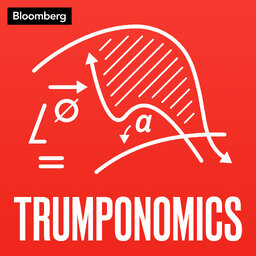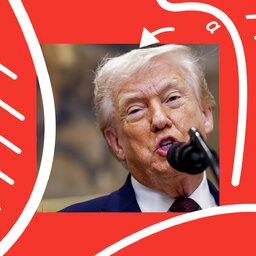Inflation Makes Duke Bootee Wonder How I Keep From Going Under
Who says economics has to be all about numbers? Take a trip back in time with the Benchmark crew to the early 1980s, when double-digit inflation was such a scourge that it inspired a lyric in the hip-hop classic "The Message." Ed "Duke Bootee" Fletcher, who wrote most of the song, joins Scott and Dan to talk about those lyrics -- and a whole lot more. Then Alice Rivlin, a former Fed vice chair, gives perspective on inflation from her decades in the economic-policy world.
 Trumponomics
Trumponomics


